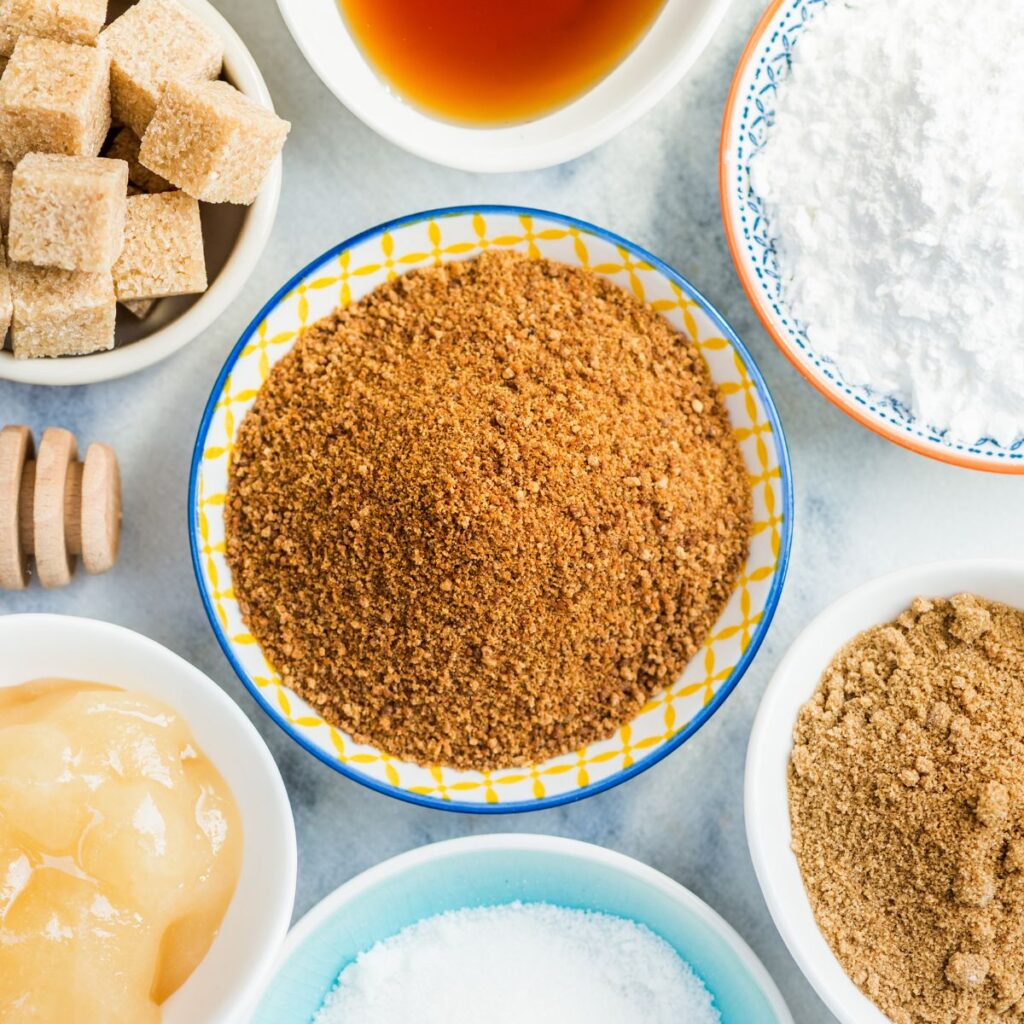
Discover the ultimate guide to the best sugar substitutes for cakes! Explore 21 healthy alternatives perfect for baking, ensuring delicious treats without compromising on taste or health.
Reasons to lower sugar intake
We’re all about living naturally and healthily, but hey, we’re not doctors. So, we dug into some research and stumbled upon this awesome article by health.com.
It dives into the perks of ditching sugar. It’s a worthwhile read if you’ve got a moment. But here are a few highlights that got us hooked.
Health Improvement: Reducing sugar can diminish the risk of type 2 diabetes, helps your heart health and more.
Dental Benefits: Less sugar helps prevent tooth decay.
Energy Stability: Lowering sugar intake prevents sugar spikes.
Mental Clarity: You may experience an improvement in mental function.
Aids in Weight Management: Choosing low-sugar options supports a healthy weight and is crucial for long-term health.
What happens if you don’t add sugar to cake?
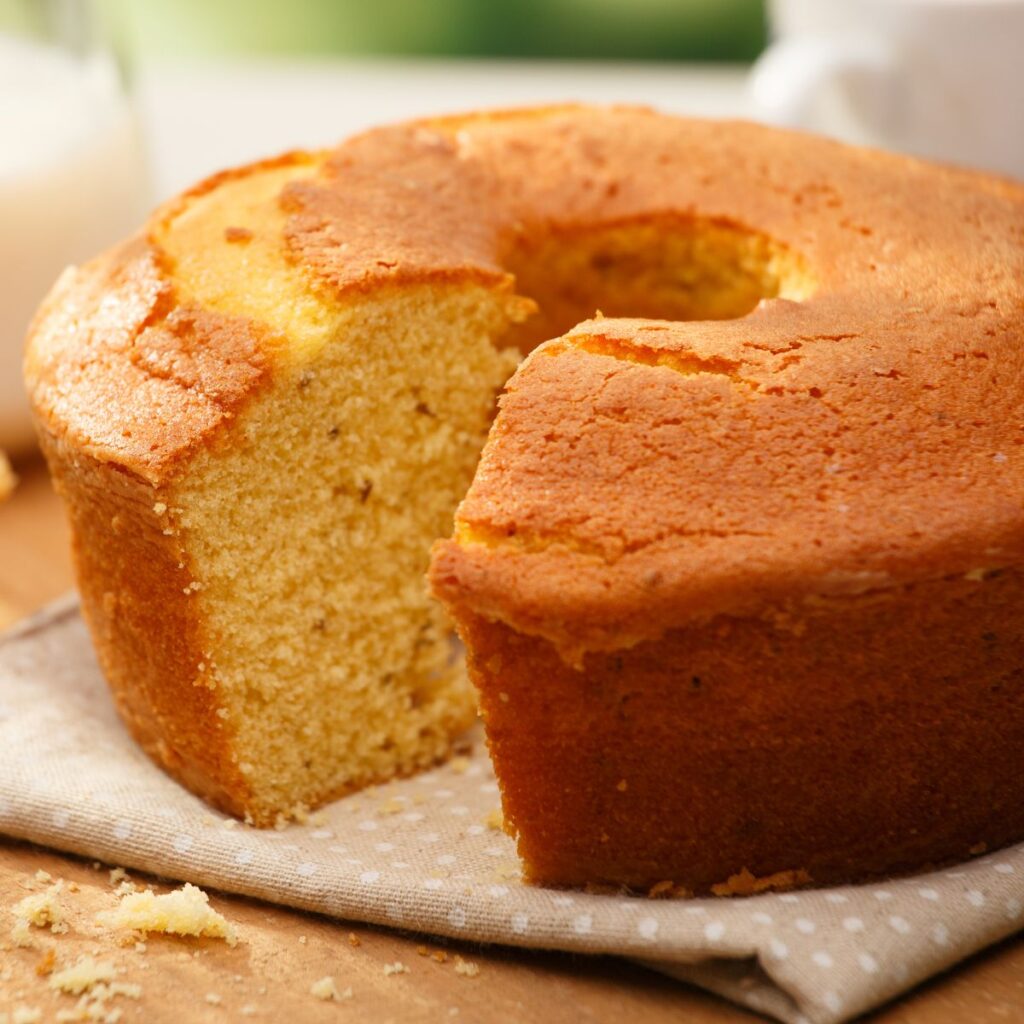
When we bake a cake without sugar, we encounter several changes in both the texture and flavor, so it’s important to understand the consequences and possible adjustments it might make:
Texture and Consistency
- Without sugar, cakes could end up with a dense and tough texture.
- Cakes may also turn out dry since sugar acts as a tenderizer.
- The rise of the cake could be affected; sugar reacts with baking powder and other leavening agents to create a light and fluffy texture.
Flavor and Appearance
- Sugar is key to a cake’s sweetness and the complex flavors we love.
- It’s also essential for the golden-brown color of a perfectly baked cake, due to caramelization.
- A cake without sugar may not brown as well, leading to a paler appearance which can be less appealing.
While sugar serves many purposes in baking, we can still make a delicious cake by choosing suitable substitutes.
For instance, we can use honey or maple syrup to retain some of the moisture and tenderness. Zero-calorie sweeteners are also an option if we’re watching our sugar intake.
Ultimately, perfecting a sugar-free cake requires experimentation to find the right balance and ensure that our indulgences are both satisfying and better for our health.
Best sugar substitute for cakes
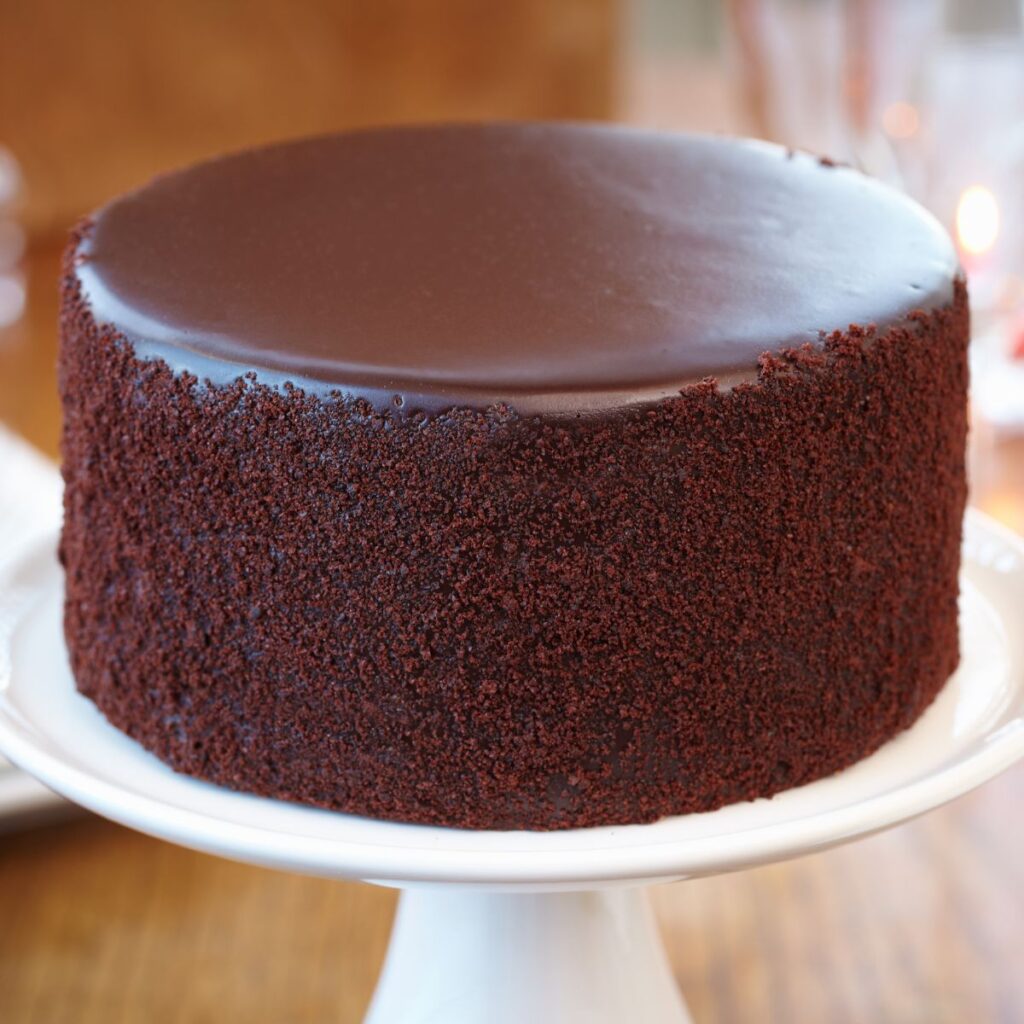
Natural Sweetening Ingredients: best options and how to use it
We understand the importance of natural options, as they often retain more nutrients and can add a depth of flavor to our cakes.
Applesauce: Swap out granulated sugar for unsweetened applesauce using a 1:1 ratio. Reduce other liquids in the recipe accordingly.
Mashed Bananas: Bananas provide natural sweetness and moisture. Replace sugar with mashed bananas one-for-one, but expect a banana flavor.
Pureed Dates: Date puree can sweeten your cakes while adding richness. A direct 1:1 sugar replacement works well.
Fruit Purees: Pear, prune, or apricot purees act as sweeteners and moistening agents. Employ a 1:1 substitution for sugar.
Sweet Potatoes: Incorporate sweet potatoes for sweetness, moisture, and a nutritional boost, matched 1:1 with sugar content.
Orange Juice Concentrate: Adding this concentrate lends natural sweetness with flavor. Proportion sparingly to replace a fraction of sugar.
Granular and Powdered Sweeteners: best options and how to use it
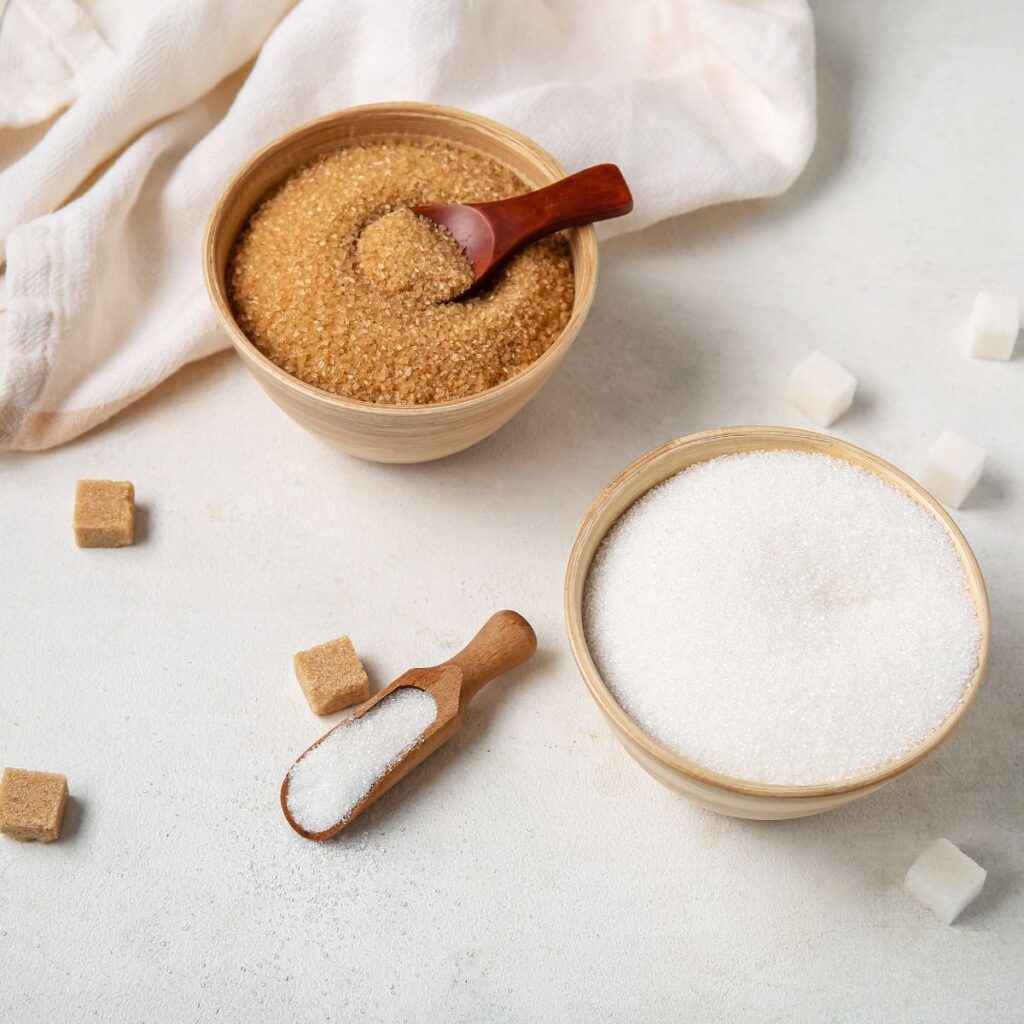
We appreciate granular and powdered substitutes that mimic the familiar texture of sugar and simplify baking.
Erythritol: Substitute sugar on a 1:1 basis; ideal for recipes where smoothness isn’t key due to its solubility characteristics.
Xylitol: Matches the sweetness of sugar—use a 1:1 ratio—but note it can produce a cooling sensation and is dog-poisonous.
Stevia: Intensely sweet. Replace a cup of sugar with roughly 1 teaspoon, adjusting the recipe with additional ingredients for volume.
Swerve: This erythritol-based substitute can be directly traded cup-for-cup with sugar in recipes.
Truvia Baking Blend: Use Truvia equivalently to sugar, but always check the preferred ratio on the product’s packaging.
Tagatose: Behaves and browns like sugar, safer for blood glucose, and can be used just as you would traditional sugar.
Liquid Sweeteners: best options and how to use it
Liquid sweeteners infuse cakes with a delicious, moist texture and add distinctive flavors that can enhance the overall taste.
Honey: Replace sugar with 3/4 cup honey per cup, decrease other liquids by 1/4 cup and lower the oven temperature by 25°F.
Maple Syrup: Offers a robust flavor, best used in a 3/4 cup per cup ratio. Similarly, trim down other liquids and the temperature.
Agave Nectar: Sweeter than sugar, so use 2/3 cup for every cup of sugar. Adjust the liquid content and monitor baking time.
Molasses: Perfect for spice cakes, use a 1:1 ratio instead of sugar, and reduce other liquids in the recipe moderately.
Rice Syrup: To achieve a mild sweetness, use equal parts in place of sugar and reduce other liquid ingredients slightly.
Coconut Nectar: It brings a subtle coconut flavor, utilized at a 3/4 cup to 1 cup ratio and paired with decreased liquid components.
Specialty Sweeteners: best options and how to use it
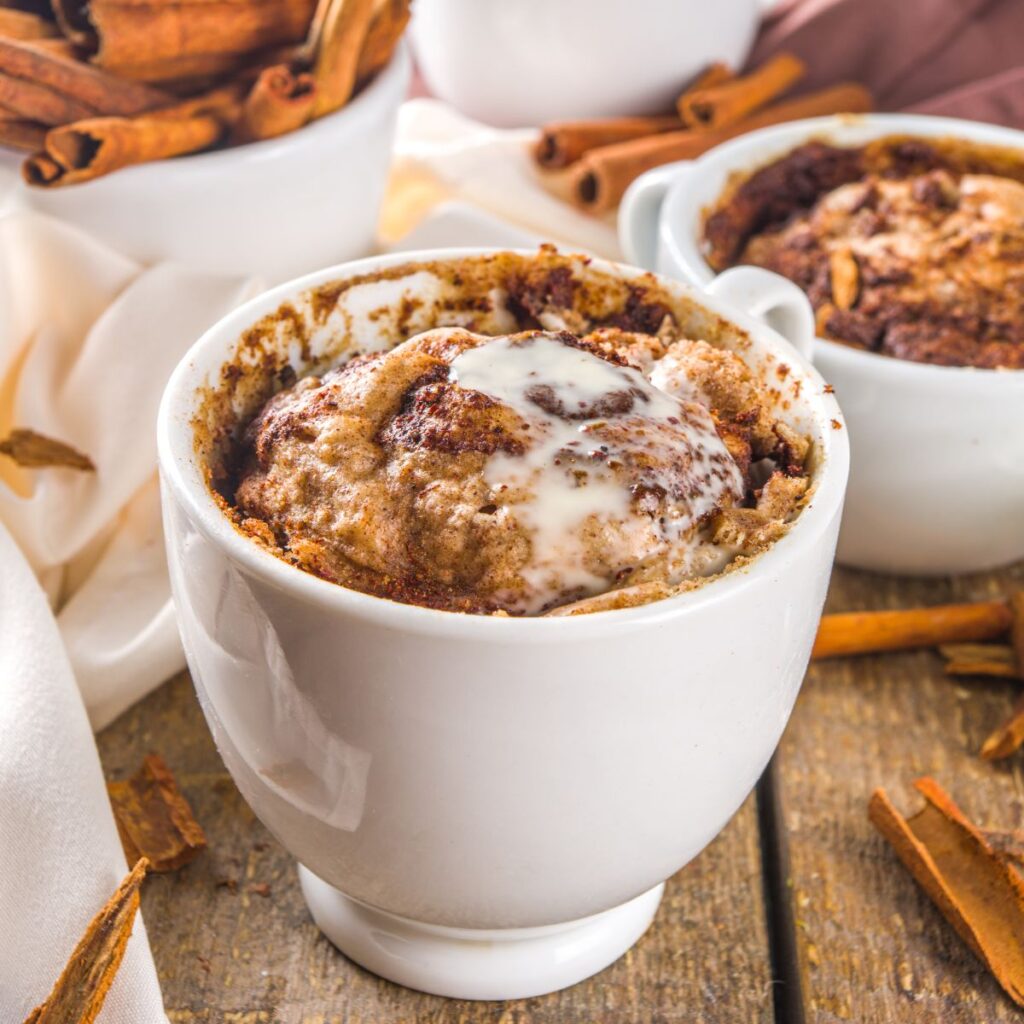
There are unique sweeteners available that cater to particular dietary requirements while still delivering the sweetness our palates crave.
Monk Fruit Sweetener: This natural extract is vastly sweeter than sugar. Begin with a minute quantity and sweeten to preference.
Allulose: Exhibits a sugar-like taste and texture. Typically employed in the same amount as sugar, known for tender, moist cakes.
Coconut Sugar: This alternative not only adds a caramel-like flavor but also presents a more nutritious profile and can be used in a one-to-one ratio with regular sugar.
Best choice for you
When choosing a sweetener for your baking project, it’s essential to consider your dietary preferences and specific needs. Whether you follow a low-carb, keto, or simply prefer sugar-free options, there are a variety of substitutes that can be seamlessly integrated into your recipes:
| Sweetener | Type | Best Used In | Keto-Friendly | Note |
|---|---|---|---|---|
| Stevia | Plant-Based | All types | Yes | Use sparingly, potent sweetness |
| Erythritol | Sugar Alcohol | All types | Yes | Similar sweetness level to sugar |
| Monk Fruit | Natural Extract | All types | Yes | Ideal for maintaining low-carb diet |
| Xylitol | Sugar Alcohol | Cakes needing caramelization | No | Keep away from pets |
| Honey | Natural Sweetener | Moister cakes | No | Adds moisture, reduce other liquids |
| Maple Syrup | Natural Sweetener | Various baked goods | No | Rich flavor, liquid sweetener |
| Coconut Sugar | Natural Sweetener | Various baked goods | No | Low sugar impact |
| Molasses | Natural Sweetener | Rich, dense baked goods | No | Strong flavor, adds moisture |
| Fruit Purees | Natural Sweetener | Moist cakes | Sometimes | Can replace oil for less fat |
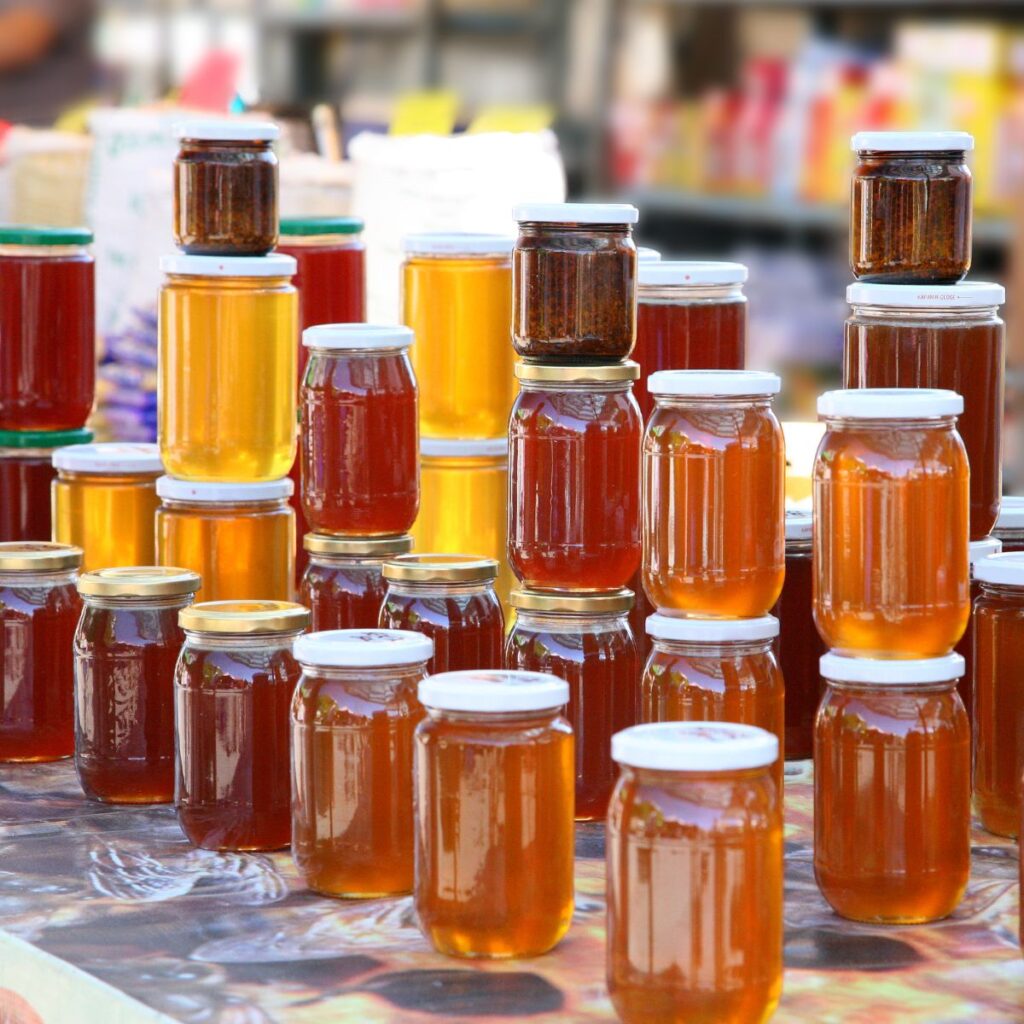
Let’s break this down a bit:
For more healthy cakes: Healthy sugar substitutes are options that are kinder to your body, offering less of a sugar rush and fewer calories. These include stevia, erythritol, monk fruit sweetener and xylitol.
For more natural cakes: Natural sugar substitutes are those that are minimally processed and closer to their form in nature. These include honey, maple syrup, coconut sugar, molasses and fruit Purees
For keto: For keto, the best sweeteners are those that won’t interfere with your body’s carb-burning mode. Erythritol, monk fruit sweetener, and stevia are popular choices that fit within keto guidelines.
For specific cakes: For moist cakes like carrot or banana cake, fruit purees or applesauce can be excellent choices. For light and fluffy cakes, granulated sweeteners like Swerve or a stevia-erythritol blend are preferable. For rich, dense cakes, liquid sweeteners like agave nectar or yacon syrup can work well.
That tastes like sugar: If you’re looking for a substitute that tastes most like sugar, erythritol and xylitol are good options since they have a similar sweetness level and can caramelize like sugar. However, be mindful of their digestive effects and potential toxicity to pets.
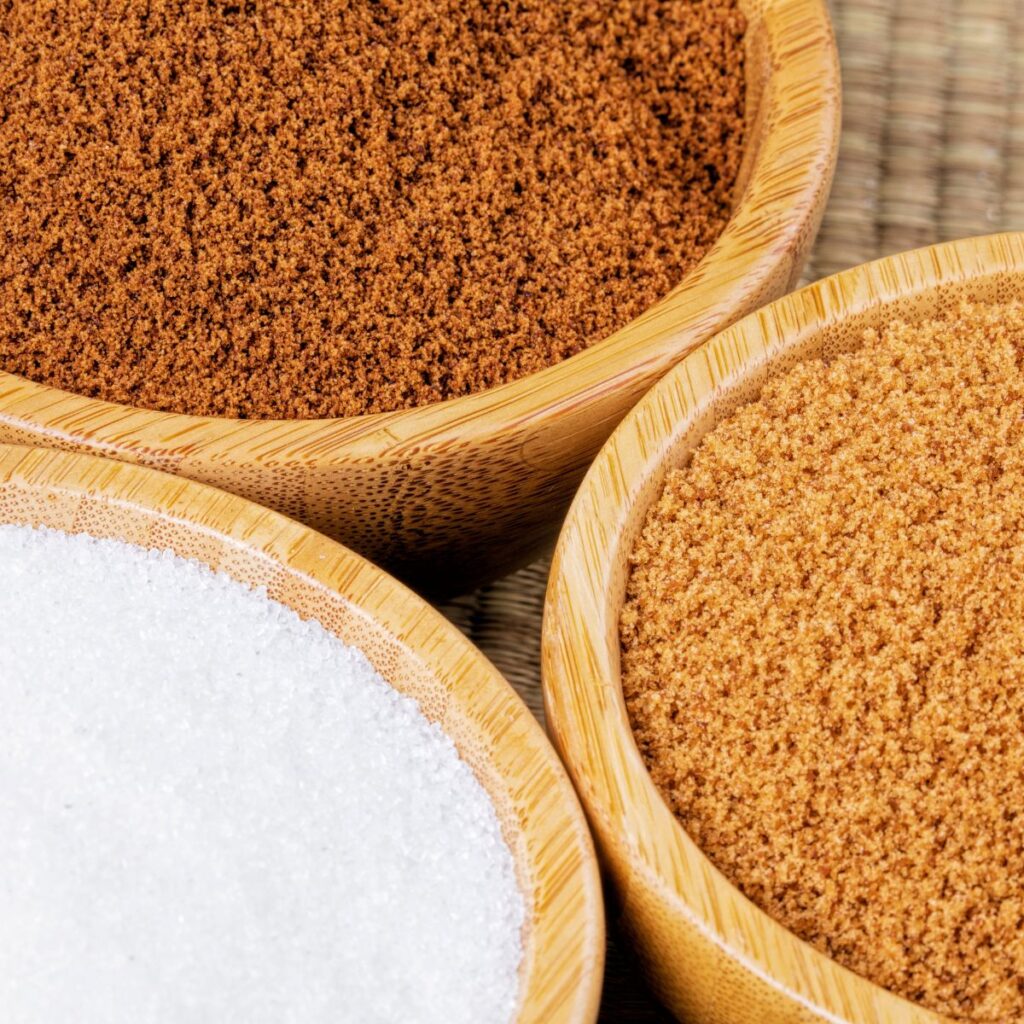
Here are some tips we’ve found helpful:
- To attain that crave-worthy, moist cake, try fruit purees. They not only add sweetness but also contribute to the overall texture of your cake.
- If you’re baking something light and fluffy, like angel food cake, a granulated sweetener could help achieve that airy texture.
- For the rich, dense cakes that we all love, a drizzle of agave nectar brings not just sweetness, but a complexity that enhances your cake’s flavor profile.
Choosing the right sugar substitute can truly transform your baking, aligning with both health considerations and the pursuit for delicious outcomes. Experiment with these alternatives to find the best match for your recipes and taste preferences.
Remember, adjusting a recipe to suit a new sweetener might require some trial and error, but the results can be incredibly rewarding. Happy baking!
FAQ: Frequently asked questions on sugar substitutes for cakes
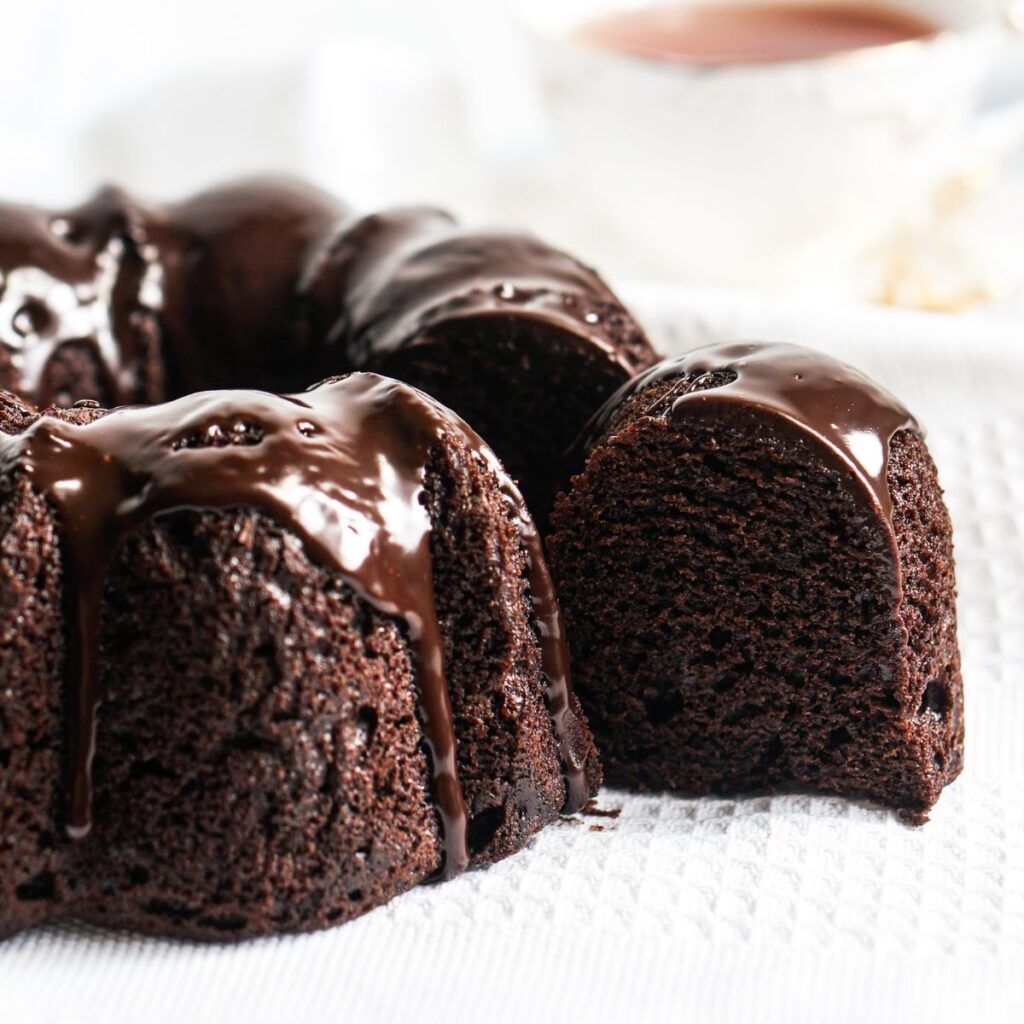
The best sugar substitute for baking depends on your dietary needs and the type of baked goods you’re making. Erythritol and monk fruit sweetener are excellent for those looking for low-calorie, low-carb options, while honey and maple syrup are ideal for more natural alternatives.
Baked goods can be sweetened without sugar by using natural sweeteners like honey, maple syrup, and fruit purees, or sugar alcohols like erythritol and xylitol. Stevia and monk fruit extracts are also potent sweeteners that can be used in small quantities.
A good substitute for sugar in baking includes natural sweeteners, sugar alcohols, and artificial sweeteners.
Yes, honey can be used instead of sugar in cake recipes. When substituting honey for sugar, use about 3/4 cup of honey for every 1 cup of sugar, and reduce the amount of other liquids in the recipe by roughly 1/4 cup to account for the additional moisture from the honey. Also, lower the oven temperature by 25°F (about 4°C) since honey can cause baked goods to brown more quickly.
Sugar is not strictly necessary for the structure of a cake, but it does contribute to the taste, texture, and browning. Sugar helps with leavening and moistness, and creates a tender crumb. If you omit sugar entirely, you may need to adjust your recipe with other ingredients to compensate for these qualities.
Disclaimer: Please note that this publication may contain affiliate links and A.I. assistance.